On Italian Day in Vancouver, elders remember when Little Italy was actually near downtown
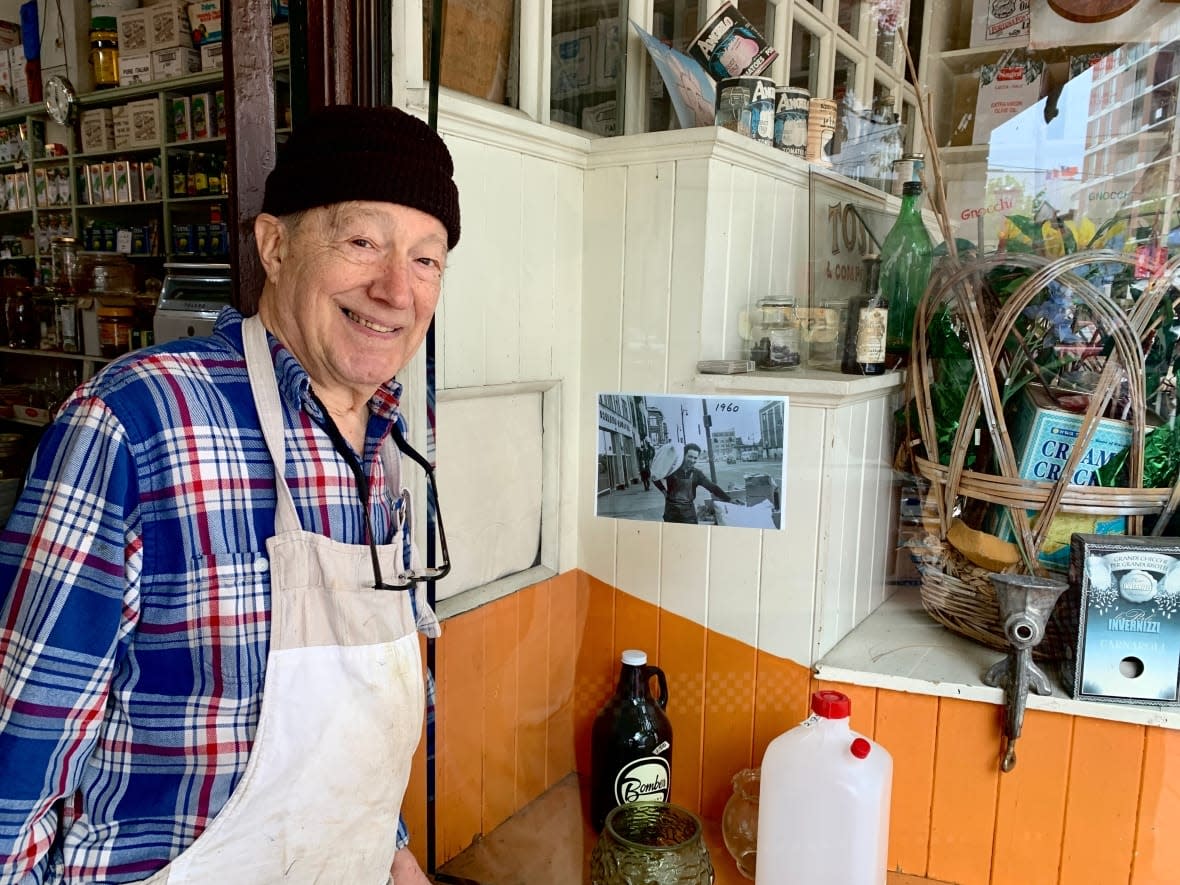
A short metal gate separates Angelo Tosi's cavernous vault of Italian cheeses, salamis, pastas and premium tinned tomatoes from the loud traffic of Vancouver's Main Street.
"You wanna come in?" the 90-year-old says as he opens the gate for a man seeking parmesan. "Here you go."
On most days, Tosi's door is shuttered, with a handwritten sign instructing would-be customers: "Ring bell. Suonare il campanello."
His shop — inherited from his father who founded it nearly 120 years ago — is one of the few remaining vestiges of a thriving Italian-Canadian community that once called the area its main home in the city.
On Sunday, the community is celebrating Italian Day on Commercial Drive, the street more commonly associated with the Mediterranean culture.
But for most of the 20th century, until the 1970s, Vancouver's Little Italy was in fact found in Strathcona neighbourhood just east of Main Street.
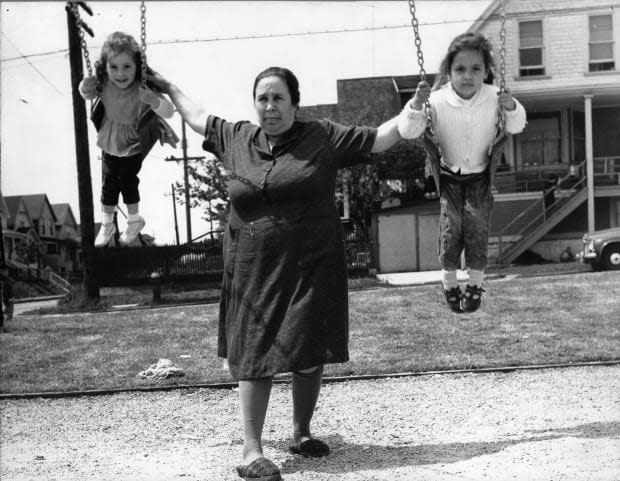
Tosi points to a black-and-white photograph of himself as a young man, carrying a bag of flour outside the shop.
"My dad started this in 1906 … and at the time there were a lot of Italians here," he told CBC News. "And then if you went to the back alleys, you would find people playing bocce. There was a lot of wine. Lots of fun.
"There's still a few Italians here, but not too many."
Only a few of the original fixtures of Vancouver's old Little Italy remain today: a family-centred community once anchored around bocce courts, curbside carts to buy grapes imported for wine, and food importers such as Tosi's, Benny's Italian Market on Union Street, and the long-relocated Bosa Foods and Venice bakery.
A key fixture of Strathcona's Little Italy, however, still operates: Sacred Heart Roman Catholic Church.
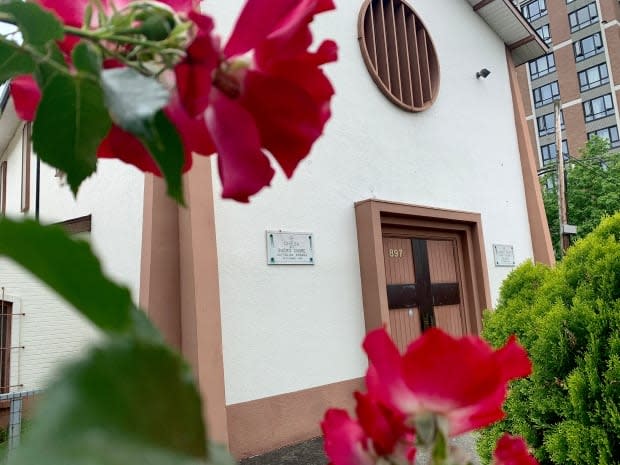
That's where Ray Culos was baptized, served as an altar boy, and later married.
"We were really closely connected with the church," explained Culos, who grew up in the neighbourhood and whose Italian parents came to Canada where they settled in Strathcona.
"That was a big thing on Sunday, and then you ended up at someone's house for lunch or coffee."
Then, he said, men in white collared shirts and dark pants would assemble at the area's dozen or so bocce ball courts — including one in his grandparents' yard — and play the Italian lawn bowling game.
The prize? Home-made wine, made from grapes his family imported from California similar to the Italian vintages they loved.
"Growing up was a wonderful experience for me personally because it was a great place to live," Culos, a member of the Italian Cultural Centre Society, told CBC News. "Everybody knew you and they knew your parents. You couldn't get away with anything!
"The people of Italian origin were dominant there."
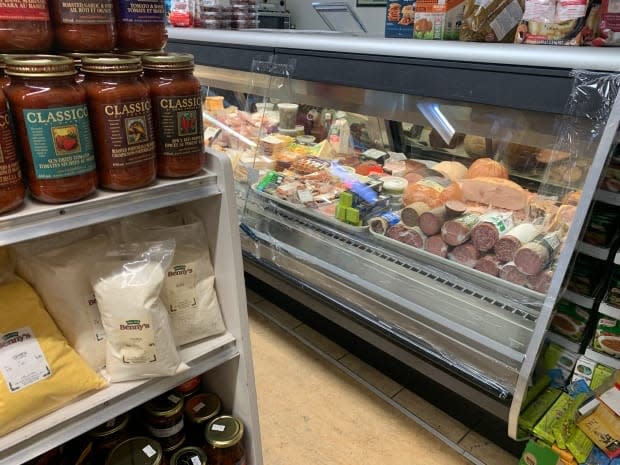
Fighting back against displacement
Culos said he inherited from his parents a desire to support their community — and at the same time to cultivate trusting relationships with other immigrants in the area, also home to Chinatown, Japantown, and Hogan's Alley, the city's one-time Black neighbourhood before it was pushed out to make way for a freeway.
Residents representing the area's cultural and economic diversity rallied to stop the project.
"You had that kind of confluence in Strathcona then, because it was really a kind of catchment of immigrant populations," said historian and neighbourhood resident John Atkin, author of Strathcona: Vancouver's First Neighbourhood.
"Proximity to the jobs, and … different communities all meeting at a point, mean the neighbourhood was interesting for its history of resilience and fighting back against displacement."
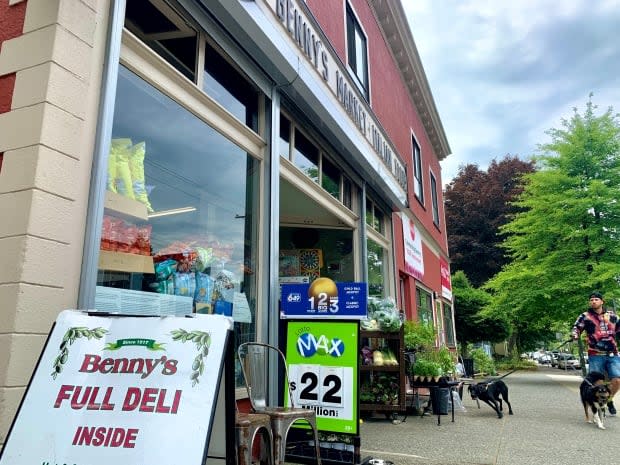
Another challenge for the Italian community arrived with the Second World War.
This Saturday marked 83 years since Italy's fascist regime joined the war, with Canada and the Allies as enemies.
On June 10, 1940, Ottawa ordered all newer Italian immigrants to report to police, and declared many "enemy aliens." Culos' own uncle was caught up in the policy, having immigrated after the fascists took power, and he was ordered to leave Vancouver.
Thousands had to report to the RCMP monthly, and Culos' father was asked to turn over records and minutes of the local Italian Canadian organization of which he was president.
Some, accused of ties to the Italian regime, were detained without access to lawyers and sent to internment camps in Alberta and further east. Last year, the city apologized for wrongs done to the community, after the federal government issued its own apology.
"They couldn't see or talk to a lawyer," Culos said. "They just were taken — they weren't arrested, they weren't charged. They were just incarcerated."
But June 10, 1940 was also the day his father and other community leaders held an event for Italian Canadians to prove their patriotism and publicly swear allegiance to Canada and the Crown.
Commercial Drive becomes Little Italy
Gradually, Atkin said, the community began to drift away from Strathcona after the war, establishing businesses along East Hastings Street, espresso bars and restaurants on Commercial Drive, and into Burnaby.
By 1977, the Drive had become known as Vancouver's Little Italy, he said.
Visiting the two surviving businesses in Strathcona is a frequent pleasure for Atkin, whether it's for a Benny's made-to-order sandwich, cheese from Tosi's, or conversations with their latest generation of owners.
"There's a resilience here in the community that is ingrained," Atkin said. "It's almost like it's in the water."
For Tosi, the Italian community may have dispersed, but many still visit his shop.
"There still are the Italians, because they come down from all over," he said.
"They say, 'Mr. Tosi I never have to throw anything away; it's all wonderful, it's all good.'"


